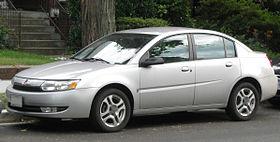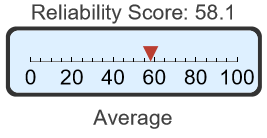How Trust Influences The Cars We Buy
By on January 11, 2018

Trust is critical to everything you buy; from a dollar can of Coke to a $68,000 Tesla. In the used car market though, that trust can make you completely blind to a long list of vehicles that are unpopular, but reliable.
Let me give you two examples of how trust can either lead to your next best car, or a rolling catastrophe that will suck your savings account.
This Tuesday I bought two cheap cars for my dealership here in Georgia.


This 2005 inexpensive Honda Civic LX is a rolling version of religion in the car business. The Carfax is perfect with well over 30 visits to a Honda dealer and it has absolutely no accidents.


It looks as holy as it is rolling, with over 226,000 miles on the odometer and an interior that looks far more like a 100,000 mile car thanks to the fact that the prior owner had it garaged. A vehicle that has clocked up this many miles would be a bonus for anybody, especially if it drives like it is brand new. And if it was a car with great fuel economy, like the Honda Vezel, then it really is a car that you should consider buying. For some people, it will have everything you could ever want in a car.


I bought it online for $1700 plus a $225 buy fee. Not bad since most Hondas are an easy sale in today’s market. However there is one fatal flaw with this vehicle. It’s a poor value compared to a long list of alternatives.
Take this car…


If you don’t know what it is, don’t feel bad. Way back in the early 1990s General Motors decided to launch a new car division called Saturn. This nearly ten billion dollar launch would do battle with the small Japanese cars that were then dominating the market.
When someone you knew managed to save up enough money to buy their first new car back in the 1990s, it was GM’s hope that Saturn would bring millions of those frugal new car shoppers back to domestics. They did, but then they left because once that Saturn was traded in or sold, the Saturn division had no other cars to offer.
General Motors had seven other divisions that needed cars too, and Saturn was eventually seen as a threat to their own success. Saturn was left to rot in the vine with nothing to sell their happy customers other than that same compact car.


This 2003 Saturn Ion was that last and only new breath of fresh air Saturn received in the entry level market before it became a marketer of me-too General Motors cars. The division folded in 2009 for good when GM filed Chapter 11 bankruptcy.
As for quality, the Ion has been a solid performer in the used car market. If you click here, you’ll find that most GM models actually outperform the overwhelming majority of cars in the compact car market. The Saturn Ion is one of those standouts.
Saturn Ion Reliability
 Vehicle count: 5460
Vehicle count: 5460
However the Saturn brand is technically defunct. There are no new Saturns anymore, and this lack of new car advertising makes the Ion far less popular than the Civic.
How much does this bad track record and lack of publicity cost all those Saturn Ions in the used car market? Tons! This particular Saturn Ion is just as immaculate as the high mileage Civic. Both are great products, but there is one big difference between these two cars.

The Saturn has only 98,000 miles on it, and yet it still sells for the same wholesale price as a 226,000 mile Civic.
As for retail price, I believe the Saturn will sell for the same $2500 to $2800 range as the Civic. Yet it only has 98,000 miles on it. Nearly 130,000 miles less than the Honda Civic. That’s about 10 years worth of extra driving for the next owner if they drive just over 12,000 miles a year.
What makes the difference? Trust.
The Honda Civic is still popular and sells in the hundreds of thousands. The nearly forgotten Saturn Ion sold only a third as much as the Civic during its brief time in the marketplace, and the Saturn brand went completely belly up nearly a decade ago. When it comes to new car advertising, you won’t see Saturn and this effects the used car value of any Saturn out there.
So when someone tries to find a good cheap car on Craigslist, Autotrader, or Facebook, guess which name means more to the buyers, and guess which one is a historical footnote?
If you want to hit ’em where they ain’t and buy a good used car for a lot less money, you should always consider the discount bin filled with great cars that are no longer popular to no fault of their own. The Scions, Saturns, Mercurys, and Pontiacs, may not have the golden reputations of their more popular siblings. But often times they give you the same level of quality and durability for a lot less money.
That’s where you win. When you invest in those tools that give you a legitimate level of trust such as an inspection by an experienced mechanic, a Carfax history to help sort out the losers, and basic reliability research that tells you the real-world reliability of the car, those are the ingredients that make the right recipe in the used car market.